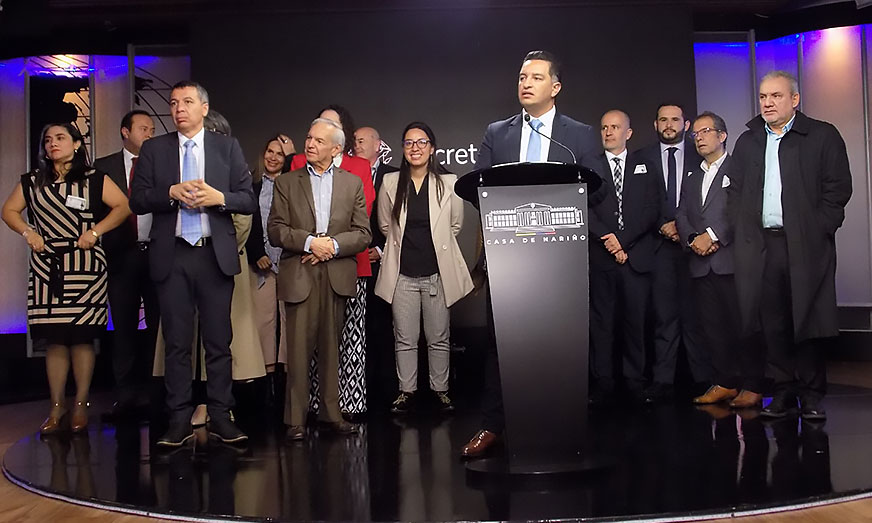Bogota. The Secretariat for Transparency, affiliated to the Presidency of Colombia, has presented the first report on impunity for corruption in the country. It shows that 94 percent of the cases were not convicted.
The Secretariat’s investigation covers the period between 2010 and 2023. Of 57,582 reports, only six percent led to a conviction and 77 percent remain in the investigation phase. As a result, the statute of limitations expires and the proceedings are discontinued when the deadlines expire.
The most common offenses are embezzlement through appropriation and improper procurement, followed by extortion, bribery, improper interest in entering into contracts, illicit enrichment and influence by public officials.
Secretariat head Andrés Idárraga called this “a disgrace for the country” and called for a “National Commission for the Improvement of Morals” composed of state institutions and control bodies and headed by the President.
At the top of the list of departments with the highest crime rate for corruption is the San Andres Islands, followed by Guaviare, Bolívar, Putumayo, La Guajira, Casanare, Córdoba, Vaupés and Arauca.
Attorney General Francisco Barbosa dismissed the report, citing his own accomplishments at the helm of his agency. However, the prosecutor’s office itself is being questioned due to a lack of progress in several crucial areas.
The current head of the National Agency for Legal Protection of the State, Martha Lucía Zamora, who headed the Attorney General’s Office in March 2012, also contradicted the report.
Colombia continues to receive fresh news about the Odebrecht bribery scandal, which appears to involve the entire traditional political class. This had concluded a pact of silence, so that the campaigns for the presidential elections of Óscar Iván Zuluaga and Juan Manuel Santos are not investigated.
More recently, high-ranking state officials such as the head of the National Electoral Commission, Alexander Vega, and the ombudsman, Carlos Camargo, have also been linked to the scandal.
It is also worth noting that on July 17 the Supreme Court opened an investigation into conservative San Andrés Congressman Julio Gallardo, who had previously been convicted of the toga cartel. The “cartel de la toga” (cartel of judges’ robes) was a law enforcement evasion network uncovered in 2017. The members of the Supreme Court involved committed the offenses of bribery and extortion. There were more than 50 arrests.
The misappropriation of funds by politicians has become normal for the population. A few days ago, one of the first to be convicted in the Odebrecht case, former Congressman Elías Vidal, known as “Ñoño Elías” , was given a warm welcome in his hometown of Sahagún when he was released after serving four-fifths of his sentence. This case also shows that Colombian legislation is extremely lax in sentencing the corrupt, who end up in prison and whose assets remain intact.
The problem of corruption, however, is a structural problem of the state, in which public money is used as loot to enrich the ruling classes, who combine themselves in mafias and “political clans”. These are able to buy voters who, faced with the difficult conditions of poverty, will sell their votes and reproduce this vicious circle.
